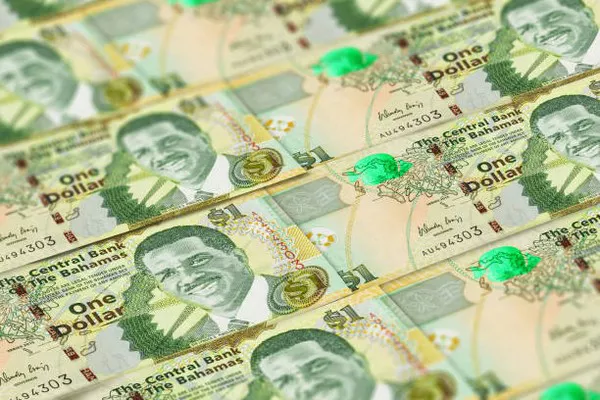The Bahamian dollar, denoted by the currency code BSD, stands as a testament to the interconnectedness of global economies. While the Bahamas is the primary issuer of this currency, the Bahamian dollar has found its way beyond the archipelago’s shores. This article explores the countries that utilize the Bahamian dollar, shedding light on the factors that contribute to its international acceptance.
Origin and Background:
The Bahamian dollar traces its roots back to 1966 when it was introduced as the official currency of the Commonwealth of the Bahamas, replacing the British pound. Pegged to the U.S. dollar at a fixed exchange rate, the Bahamian dollar has been a symbol of stability in the region. Its wide acceptance within the Bahamas has facilitated its usage in international transactions, making it a notable currency beyond the nation’s borders.
Countries with Direct Acceptance:
Several countries and territories directly accept the Bahamian dollar for transactions, fostering economic ties with the Bahamas. One such notable example is the Turks and Caicos Islands, a British Overseas Territory in the Atlantic Ocean. Due to its proximity and historical ties with the Bahamas, the use of the Bahamian dollar is prevalent in daily transactions, alongside the United States dollar, which is also widely accepted.
Additionally, the Cayman Islands, another British Overseas Territory in the Caribbean, recognizes the Bahamian dollar, primarily in the tourism sector. The ease of interchangeability with the U.S. dollar makes the Bahamian currency a practical choice for businesses catering to tourists from the Bahamas.
The Impact of Tourism:
Tourism plays a pivotal role in the international circulation of the Bahamian dollar. The Bahamas, known for its pristine beaches and vibrant culture, attracts a significant number of tourists annually. Many of these tourists bring Bahamian dollars with them, creating a natural demand for the currency in countries where tourism from the Bahamas is prevalent.
In the Caribbean region, countries such as Jamaica and the Dominican Republic have witnessed the acceptance of the Bahamian dollar in tourist-heavy areas. Local businesses, ranging from restaurants to souvenir shops, often welcome the currency due to its stability and ease of conversion.
Trade and Economic Relationships:
Beyond the Caribbean, the Bahamian dollar has found utility in trade relationships with countries that share economic ties with the Bahamas. The United States, as the primary trading partner, has seen instances where the Bahamian dollar is accepted, particularly in border regions and areas frequented by Bahamian nationals.
Moreover, countries with a significant expatriate population from the Bahamas often witness the circulation of the Bahamian dollar. The presence of Bahamian nationals in the United Kingdom, Canada, and the United States has led to the acceptance of the currency in diaspora communities, reflecting the deep-rooted connections between nations.
Financial Instruments and Global Markets:
The Bahamian dollar, although not a major player in the global foreign exchange market, is occasionally used in international financial transactions. Offshore banking and financial institutions in the Bahamas facilitate the use of the Bahamian dollar in international trade financing and investment activities.
Furthermore, some global financial markets offer Bahamian dollar-denominated securities, attracting investors seeking diversification. While the scale of these activities may not rival major reserve currencies, the Bahamian dollar’s presence in international financial markets showcases its adaptability and resilience.
Challenges and Considerations:
Despite its growing international acceptance, the Bahamian dollar faces challenges related to currency exchange infrastructure and regulatory frameworks. The need for robust mechanisms for conversion and the establishment of favorable exchange rates are essential considerations for countries embracing the Bahamian dollar in their economies.
Conclusion:
The Bahamian dollar’s journey from a local currency to one with international acceptance underscores its stability and the Bahamas’ economic influence. While the direct use of the Bahamian dollar is primarily concentrated in neighboring territories and regions with close economic ties, its presence in global financial markets highlights its adaptability.
As the Bahamas continues to strengthen its economic partnerships and navigate the challenges associated with international currency circulation, the Bahamian dollar’s role on the global stage is likely to evolve. Its resilience and versatility position it as a unique currency with the potential for further integration into the global financial landscape.


